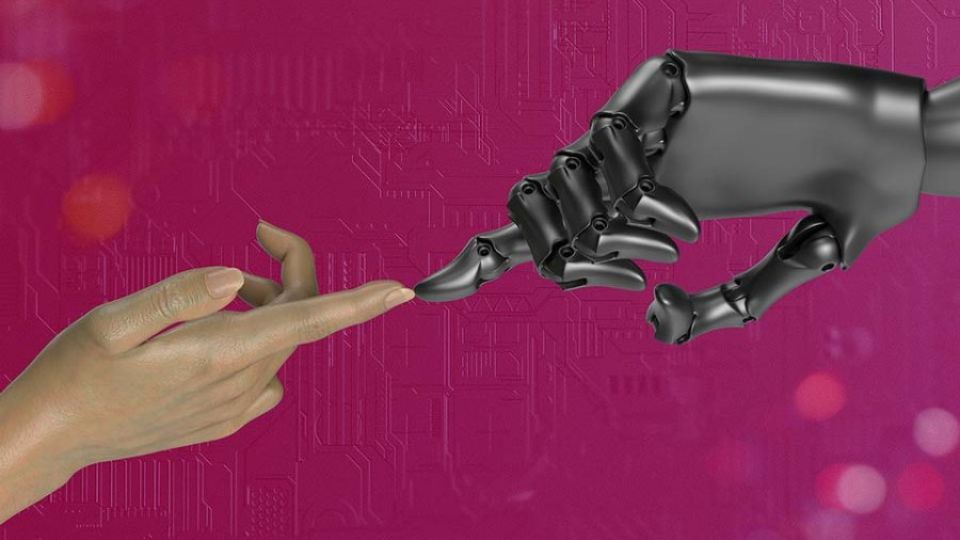November 20, 2024
MANILA – The rapid progress in the development of artificial intelligence (AI) has captivated individuals, companies, and governments, who look at this nascent technology with mixed feelings of excitement as well as dread for it promises to unleash both increased productivity and efficiency as well as potential job cuts and deeper inequality.
The consensus, however, is that ready or not, AI will fundamentally change the way people live and work, the same way that the industrial revolution and the internet did, thus it could not be simply ignored nor dismissed as a mere passing fancy.
Rather, as top business leaders said during a recent IBM conference in Singapore, the resounding call is to adopt AI or perish.
The Marcos administration has subscribed to that line of thinking with President Marcos saying in 2023 on the sidelines of the 30th Asia-Pacific Economic Cooperation Economic Leaders’ Meeting that the Philippines was “ready” for AI and that his administration’s aim was to position the Philippines as a “center of excellence in artificial intelligence.”
That was not all talk as the declaration was followed by the launch in July this year of the National Artificial Intelligence Strategy Roadmap 2.0 (NAISR 2.0) and the Center for AI Research (CAIR) by the Department of Trade and Industry with support from the Asian Development Bank.
First AI hub
It builds on the first road map formulated in 2021, driven by advancements in areas such as generative AI—models that can generate new content such as high—quality text, images, and sound based on existing data—as well as growing concerns over the ethical use of these technologies, governance, and the possible need for regulation or oversight.
Among other strategic imperatives, NAISR 2.0 calls for accelerating innovation with AI, building a robust and networked environment, transforming education to nurture future AI talents as well as upskilling and reskilling of the current workforce.
CAIR, meanwhile, is envisioned to be the country’s first AI hub that will house AI experts who will create AI-aided solutions for top local and regional concerns including urban planning, disaster resilience, health care, and sustainable agriculture.
The World Economic Forum predicted in its Future of Jobs Report 2023 that 23 percent of global jobs will change in the next five years due to industry transformation, including through AI and other text, image, and voice processing technologies.
Property giant Ayala Land Inc. (ALI), for example, touts the value of building a culture of lifelong learning within the organization so that the employees will “stay relevant today and tomorrow.”
More complex tasks
A high 71 percent of the Philippine chief executives who took part in the 2024 Philippine CEO Survey of PwC and the Management Association of the Philippines said that generative AI would require most of their workforce to develop new skills so that they can reap the benefits that AI can potentially bring to the table.
These needed skills include digital literacy and critical thinking to wade through data to come up with actionable insights that can lead to productivity gains. Failure to do so will mean a greater risk that their current jobs will be rendered obsolete by AI.
Citing a study by Harvard University, ALI chief human resources officer Isabel Sagun said that if done right, AI can enhance the performance of highly skilled workers by close to 40 percent.
“AI automates repetitive tasks, enhances content creation, as you already know, and accelerates problem-solving,” Sagun said as she shared with the hundreds of fellow HR chiefs and other company executives ALI’s best practices during the Philippine Daily Inquirer’s What Works at Work summit last week.
“This collaboration increases productivity and job satisfaction as humans can focus on more complex tasks while robots can handle the simpler ones,” she added.
Digital inclusivity
Clearly, there is much to be gained from adopting AI and the Marcos administration can ensure that nobody will be left behind by ensuring digital inclusivity, which means expanding internet connectivity and digital literacy programs across the Philippines so that the majority will have a chance to reap the benefits that can come from AI adoption.
This it can do through increased budget allocations for research and intensive training of the current and future workforce as well as through partnerships with the private sector with the tools and the expertise to help transform the Philippine workforce.
IBM Philippines, for example, has already started to deploy free online courses on their online learning platform SkillsBuild to help the local labor market learn more about how to use AI in their work.
Partnerships such as this must be encouraged if the Philippines wants to improve its chances of adopting AI in a way that would ensure that its workforce will have the skills and technology that they will need to survive and thrive in a constantly evolving workplace.


